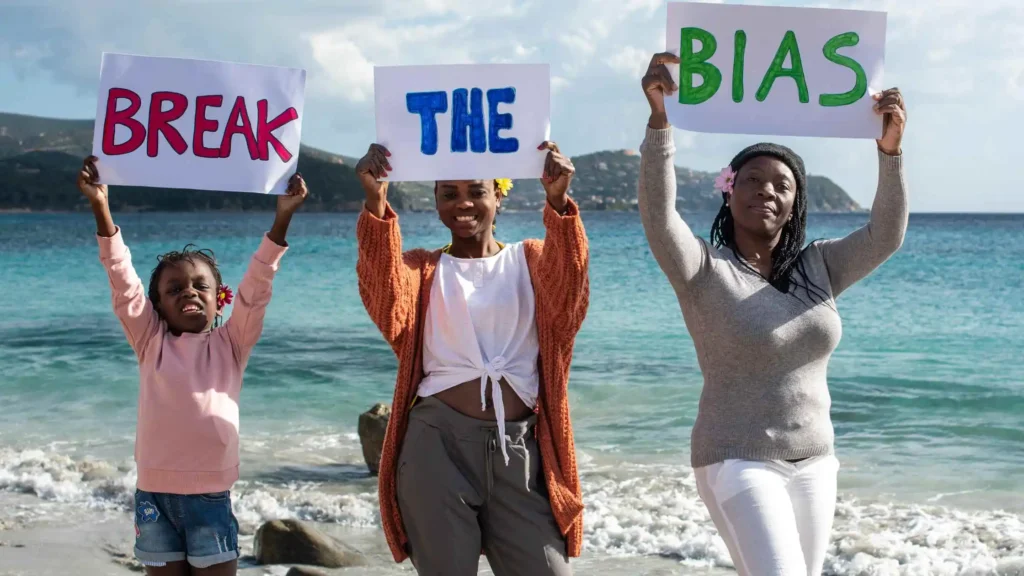The women who are in distress is a woman that has problems with herself or the society, she doesn’t have enough money, if someone hurts her because of being a girl and when inside feels bad. Our responsibility towards these women is extremely crucial because their emotions shape up their living and level of happiness. But when women in distress get to feel this way, they may become more stressed out or anxious altogether depressed. What is worse, if these feelings are unresolved they can make everything much worse for a long period of time preventing from being close to others, doing well at work or sometimes even just enjoying the ordinary things.
However, if we assist in such a state of mind women; then it can enhance the awareness among different individuals regarding mental well being, help and provide them with places that make these women capable enough to demand support seek betterments for themselves and live happy lives This is not only beneficial to those women, but also promotes healthier communities for all people.
Women in Distress: Navigating Challenges, Finding Resilience
Read about the experiences of women in distress, learn about the factors contributing to their challenges, and discover coping strategies and support networks available to help them navigate through difficult times.
Understanding Women’s Distress
Women can feel really stressed out, especially when it comes to their feelings and mental health. Lots of things like how they feel at work and in social situations can make them feel this way. Studies have found that women often feel more stressed out than men do. This stress can come from feeling lonely, not liking their job, or having trouble balancing their work and family life.
There are some specific things that can make women feel even more stressed compared to men, like having a hard time balancing work and family, not having much say in decisions at work, being a single parent, or not feeling good about themselves. Also, women who have been through violence because of their gender can feel even more stressed. This can happen because they might not have enough support from friends or family, they might not have had much education, their partner might use drugs or alcohol, they might live in rural areas, they might be younger, or they might not have much money.
All of this shows that women in distress come from lots of different things in their lives, like work, social stuff, and personal stuff.
Impact of Distress on Women’s Mental Health
When women feel really stressed or upset, it can affect their mental health in many ways. This stress might come from things like pressure from society, money problems, violence because of their gender, or other things that make them feel bad.
Here are some ways this stress can affect women:
They might feel really anxious and stressed out all the time. They could constantly worry, feel like things are too much to handle, and even feel like something bad is going to happen. This can make their bodies feel tense, give them headaches, and make them really tired.
They might feel really sad, hopeless, and worthless. Their appetite and sleep might change, and they might lose interest in things they used to enjoy.
If they’ve been through really bad things like violence or really tough times, they might get something called PTSD. This can make them have scary memories, feel like they’re reliving bad moments, be super alert all the time, and avoid things that remind them of the bad stuff.
They might start feeling bad about themselves, thinking they’re not good enough. They might be really hard on themselves, doubt themselves, and not feel like they can stand up for themselves or go after what they want.
They might have a hard time getting along with people, not want to hang out with others, and feel really alone. This can make their mental health problems worse and make them feel stuck in feeling bad.
Feeling stressed out for a long time can also make their bodies sick. It can cause problems like heart disease, messed-up immune systems, stomach issues, and other health problems.
So, when women are really stressed or upset, it can mess with their minds and bodies in lots of ways. It’s important to try to find ways to deal with stress and get help if they need it.
The Intersectionality of Women in Distress
With the mention of “intersectionality”, referring to women in distress, and here we mean offenders can be women as well this would guarantee that not all people are depressed similarly. It is often affected by a variety of things, such as their race origin income attracted to and gender identity etc. All these issues combine and contribute to the way women perceive themselves during hard times.
Race and Ethnicity
Women from various racial and ethnic groups might feel different kinds of sadness because of unfair treatment, prejudice, and past hurts. For instance, Black, Indigenous, and women of color (BIWOC) could deal with stress and difficulties because of their race, which can affect how they feel mentally.
Socioeconomic Status
Poor women have it especially hard because they are already poor, find no jobs or steady places to live and in the end cannot get any form of health care for their mental issues. They feel even worse when they do not have enough money to meet their needs which also discourages them from being helped.
Sexual Orientation and Gender Identity
LGBTQ+ women might face special difficulties because of unfair treatment, negative labels, and feeling stressed about who they are. These challenges can make them feel more upset. They might also have trouble getting the support they need for their mental health that accepts and includes them.
Disability
Women who have disabilities might find it hard to get help for their mental health, to find places to stay that suit their needs, and to be included in society. They might feel upset because of people’s beliefs about disabilities, how society sees them, and the difficulties of getting around in places that aren’t accessible to them.
Immigration Status
Immigrant and refugee women might feel really upset because they had to leave their home, find it hard to fit into a new culture, struggle with language differences, and worry about being sent back to their home country. These problems can make them feel not good mentally and physically, especially when people say bad things about immigrants and there are strict rules against them.
Religion and Culture
Different cultures and religious beliefs can affect how women feel when they’re upset and how they deal with it. But sometimes, cultural shame, what families expect, and old-fashioned ideas about men and women can make things worse for some women .
Breaking the Stigma Surrounding Women in Distress

It’s really important to change the way people think about women who are struggling. When society looks down on women’s health problems like mental health issues, reproductive health, or domestic violence, it makes it harder for them to get the help they need. We need to talk openly about these issues, teach people about them, and correct any wrong ideas. By spreading awareness about women in distress and making spaces where women feel safe to ask for help, we can make it easier for them to get the support they deserve.
Coping Strategies for Women in Distress
Here are some easy-to-understand women in distress and make them feel better: The world after Covid-19 pandemic will be very different from the prehistoric one.
– Engaging in activities such as a regular workout, restful sleep habits, quality food choices and relaxation strategies like meditation or deep breathing practices could reduce stress levels and boost current well-being.
– Having friends, families or groups to whom one can talk makes a big difference. Your confession about your feelings will provide you comfort and material assistance.
– A therapist or a counselor might be able to help one in quite useful ways. They can offer a safe place to share, train you on coping mechanisms and provide empowerment tools for difficult feelings.
– Such activities as mindfulness, yoga or even just lying still can make you feel empowered and less worried about your emotions.
– It is very therapeutic to do things such as art, writing music or dancing in order to release the feelings that are within one.
– The teaching on how to decline when need be, speak in your defence and treating yourself well can enable you not feel overwhelmed but confident enough.
As women in distress struggling with challenges give these efforts a try, they become more emotionally resilient and ready to deal with the difficulties of life. And remember, everyone is different and it’s okay to experiment until you find something that works for you.
Countries With Highest Rate of Women in Distress
| Country | Factors |
| Afghanistan | Conflict, gender-based violence, limited access to resources |
| Democratic Republic of the Congo | Conflict-related trauma, sexual violence, poverty |
| Syria | Trauma, lack of access to healthcare |
| Yemen | humanitarian crisis, food insecurity |
| South Sudan | Conflict, gender based violence |
| Iraq | Conflict, displacement, trauma, lack of access to healthcare |
| Somalia | Insecurity, displacement, poverty |
| Nigeria | Insurgency, gender-based violence, poverty |
| Haiti | Natural disasters, poverty, gender-based violence, limited resources |
| Venezuela | Economic crisis, political instability, humanitarian emergency |
Peer Group Networks for Women in Distress
Community and friends can be really helpful for women who are going through tough times. Groups like Sagesse have programs where women can talk to others who’ve been through similar situations, like abuse or trauma. They also teach about healthy relationships. There are advocates who run online support groups and provide mental health help and coaching to help women recover.
In Broward County, Florida, there’s a place called Women in Distress (WID). It’s a certified center that helps with domestic violence. They have a hotline you can call any time, a safe place to stay, counseling, therapy, and even help for pets.
Around the world, women’s organizations offer support like shelters, legal advice, and hotlines. These services help women feel supported, strong, and able to start over. Having these support networks is really important for women who are going through hard times.




